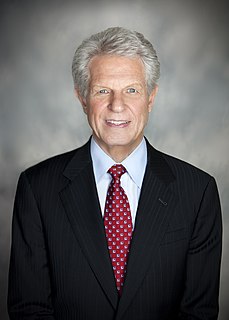A Quote by Safra A. Catz
We got bigger, much scarier competitors. We ended up with Microsoft, a company with all the money in the world, the way I look at those guys. And IBM, another company that, historically, dwarfed us.
Related Quotes
I have my own theory about why decline happens at companies like IBM or Microsoft. The company does a great job, innovates and becomes a monopoly or close to it in some field, and then the quality of the product becomes less important. The company starts valuing the great salesmen, because they’re the ones who can move the needle on revenues, not the product engineers and designers. So the salespeople end up running the company.
When you're coming into a company and, you know, have to do a transformation, what you really want to do is look at the company and say, 'Okay, here are the parts that the company does well. How do we get those genes to hyper-express? The genes that are getting in the way, how do you turn those off?'
When a company wants to move to Mexico or another company - or another country and they want to build a nice, beautiful factory and they want to sell their product through our border, no tax, and the people that all got fired, so we end up with unemployment and debt, and they end up with jobs and factories and all of the other things, not going to happen that way. And the way you stop it is by imposing a tax.
Samasource's largest clients are technology companies such as Microsoft, Google, Getty Images, and TripAdvisor, which contract with my company rather than a traditional outsourcing company in order to participate in 'impact sourcing' - conscious efforts to reduce poverty by moving money into places that need it.


































